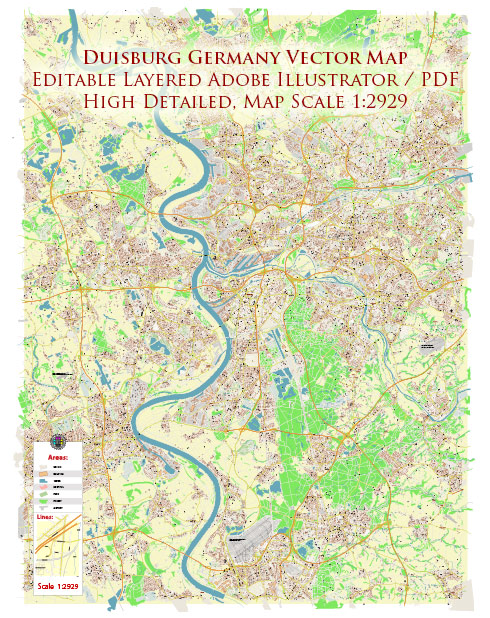Duisburg, Germany, is a city with a rich industrial history and is often referred to as the “steel and coal” city due to its strong ties to heavy industry, particularly in the steel and coal sectors. Here is an industrial description of Duisburg:
- Steel Industry: Duisburg has been a key player in the German and European steel industry for many decades. It is home to numerous steel mills and production facilities, making it an important hub for steel production. The city’s location on the Rhine River and its proximity to major transportation routes have facilitated the transportation of raw materials and finished steel products.
- Coal and Energy: The coal industry has historically been significant in Duisburg’s industrial landscape. Coal mines, although less active in recent years, have played a pivotal role in the city’s development. Duisburg is also home to various power plants, including coal-fired and natural gas power stations, which contribute to the region’s energy supply.
- Logistics and Transportation: Duisburg boasts one of the largest inland ports in Europe, the Duisburg-Ruhrorter Hafen, which is a vital gateway for the transportation of goods, including steel, coal, and other industrial products. Additionally, Duisburg is a key node in the trans-European transportation network, serving as a major rail and road junction.
- Chemical Industry: The chemical industry has a presence in Duisburg, with several chemical companies and industrial parks located in and around the city. These facilities produce various chemical products and contribute to the local economy.
- Automotive and Manufacturing: While Duisburg’s industrial landscape has traditionally been rooted in steel, coal, and heavy industry, there has been a diversification of manufacturing sectors. The automotive industry and general manufacturing have grown in importance, with several companies operating production facilities in the area.
- Innovation and Technology: Duisburg is also making strides in innovation and technology, with a focus on digitalization and Industry 4.0. Local companies are increasingly incorporating advanced technologies and automation into their industrial processes to enhance efficiency and competitiveness.
- Industrial Parks and Zones: The city has numerous industrial parks and special economic zones that cater to various industries. These areas provide businesses with infrastructure and facilities to establish and expand their operations.
Duisburg’s industrial sector has evolved over the years, adapting to changes in the global economy and environmental concerns. While traditional heavy industries like coal and steel remain important, there is a growing emphasis on sustainable practices, diversification, and modernization in line with broader economic and environmental trends in Germany and Europe.


 Author: Kirill Shrayber, Ph.D. FRGS
Author: Kirill Shrayber, Ph.D. FRGS